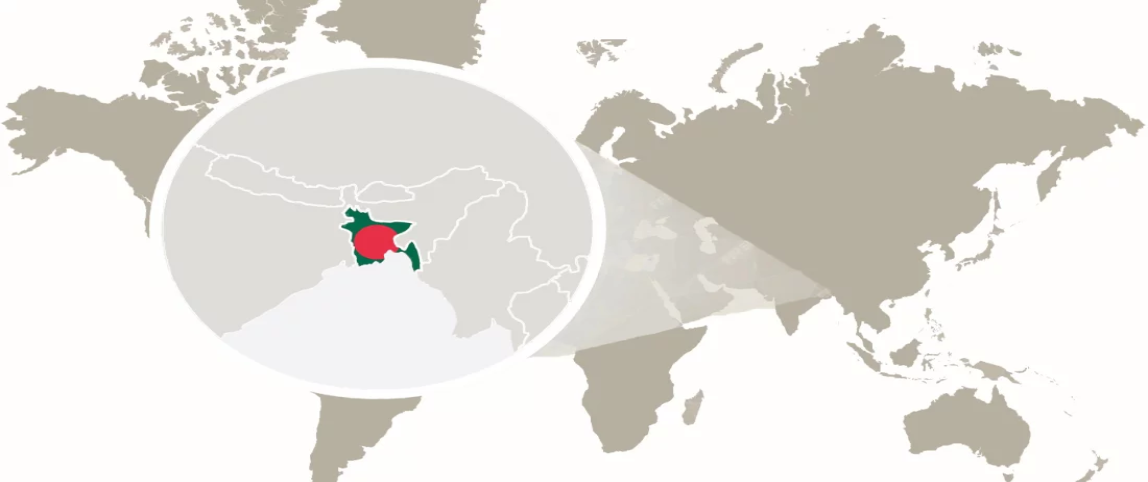In an era dominated by interconnectedness and information flows, the concept of soft power has emerged as a nuanced and powerful tool for nations seeking to assert influence on the international stage. As Bangladesh ascends to a prominent position in Indo-Pacific regional and global geopolitics, the pursuit of soft power becomes not just an option but a strategic imperative.
Soft power, as defined by political theorist Joseph Nye, is the ability to shape the preferences of others through appeal and attraction. Unlike hard power, which relies on military might or economic clout, tapping into the intangible aspects of national identity, soft power is rooted in cultural influence, diplomacy, and the projection of positive national values. It transcends traditional forms of coercion and underscores the importance of cultural appeal, shared values, and diplomatic finesse. At its core, soft power is about creating a positive image that resonates globally.
For a nation like Bangladesh, with a rich cultural heritage, vibrant traditions, historical resilience, and a burgeoning role in global geopolitics, the pursuit of soft power is not merely a strategic option but a pathway to enduring global influence. It becomes a vehicle to showcase its unique identity to the world.
Bangladesh must recognize that influence in the modern world extends beyond military strength or economic dominance. It is about winning hearts and minds, building alliances, and contributing to the global narrative in a positive and meaningful way. The nation's commitment to soft power reflects a strategic foresight that acknowledges the transformative potential of ideas, culture, and shared values in shaping the world's geopolitical trajectory.
Bangladesh, with its ethos of inclusivity and pluralism, has the potential to emerge as a beacon of tolerance and harmony in an era marked by diversity and multiculturalism. By actively engaging in international forums that promote these ideals, Bangladesh can position itself as a champion of global unity and understanding.
The dividends of soft power are not merely short-term gains but enduring alliances that contribute to a nation's long-term strategic objectives. By investing in cultural diplomacy, Bangladesh can leverage its rich heritage to foster connections, attract global attention, and build bridges with nations sharing an appreciation for diversity and cultural richness.
The economic benefits of soft power should not be overlooked. As Bangladesh continues to grow as an economic powerhouse, its soft power initiatives can complement its economic prowess. Initiatives that promote trade partnerships, investment, and economic collaboration can be seamlessly integrated with cultural exchanges and diplomatic efforts, creating a holistic approach to international relations. By projecting an image of economic stability and openness, Bangladesh can attract foreign investment and stimulate economic growth while simultaneously enhancing its global standing.
Regional influence
Soft power is also a potent tool for addressing regional challenges and conflicts. Bangladesh, situated in the dynamic Indo-Pacific region, can utilize soft power to foster cooperation, build trust, and contribute to regional stability. By initiating dialogue, participating in joint ventures, and promoting shared interests, Bangladesh can play a pivotal role in shaping the geopolitical landscape of the region. This approach aligns with the broader trend of nations recognizing the limitations of hard power in addressing complex regional issues, emphasizing the importance of collaborative solutions.
A vibrant culture
One of the primary avenues through which Bangladesh can harness soft power is through its vibrant cultural tapestry. With a heritage spanning millennia, Bangladesh possesses a unique blend of traditions, art, and literature. Initiatives that promote Bangladeshi culture on the global stage, such as international film festivals, art exhibitions, and literature exchanges, can serve as powerful tools to enhance the nation's soft power. By showcasing the diversity and richness of its cultural heritage, Bangladesh can capture the imagination of people around the world and foster a sense of admiration and affinity.
Benchmark for education
Education is another critical dimension of soft power that Bangladesh can strategically exploit. As the country invests in building world-class educational institutions and fostering academic exchanges, it not only elevates its global standing but also creates lasting ties with nations seeking intellectual collaboration. By hosting international conferences, workshops, and encouraging student exchanges, Bangladesh can position itself as a hub of knowledge and innovation, attracting talent from across the globe and fostering cross-cultural understanding.
Diplomacy and geopolitics
Diplomacy, too, plays a pivotal role in the exercise of soft power. Bangladesh's commitment to multilateralism and its active participation in international forums demonstrate a diplomatic finesse that can be further amplified. Engaging in collaborative efforts to address global challenges, from climate change to humanitarian crises, not only underscores Bangladesh's commitment to shared values but also enhances its reputation as a responsible global actor.
In the Indo-Pacific region, where geopolitical dynamics are undergoing significant shifts, the strategic deployment of soft power can be a game-changer for Bangladesh. By positioning itself as a stabilizing force, committed to fostering economic cooperation, cultural understanding, and regional security, Bangladesh can contribute to the establishment of a harmonious and prosperous Indo-Pacific community.
It is imperative to draw lessons from successful models around the world. Nations like South Korea, India, and Japan have effectively utilized their cultural assets, economic prowess, and diplomatic acumen to build robust soft power arsenals. By drawing inspiration from successful soft power models, such as South Korea's Hallyu wave or India's cultural outreach, Bangladesh can tailor its approach to align with its unique strengths and aspirations. It can emulate these strategies while infusing its unique identity into the narrative, creating a soft power paradigm that is distinctly Bangladeshi.
The pursuit of soft power is not merely an option for Bangladesh; it is a strategic imperative in the contemporary geopolitical landscape. By leveraging its rich cultural heritage, fostering economic collaboration, and actively engaging in regional and international forums, Bangladesh can not only shape global perceptions but also contribute to the establishment of a more interconnected and harmonious world.
(This article was first published by Dhaka Tribune)
















